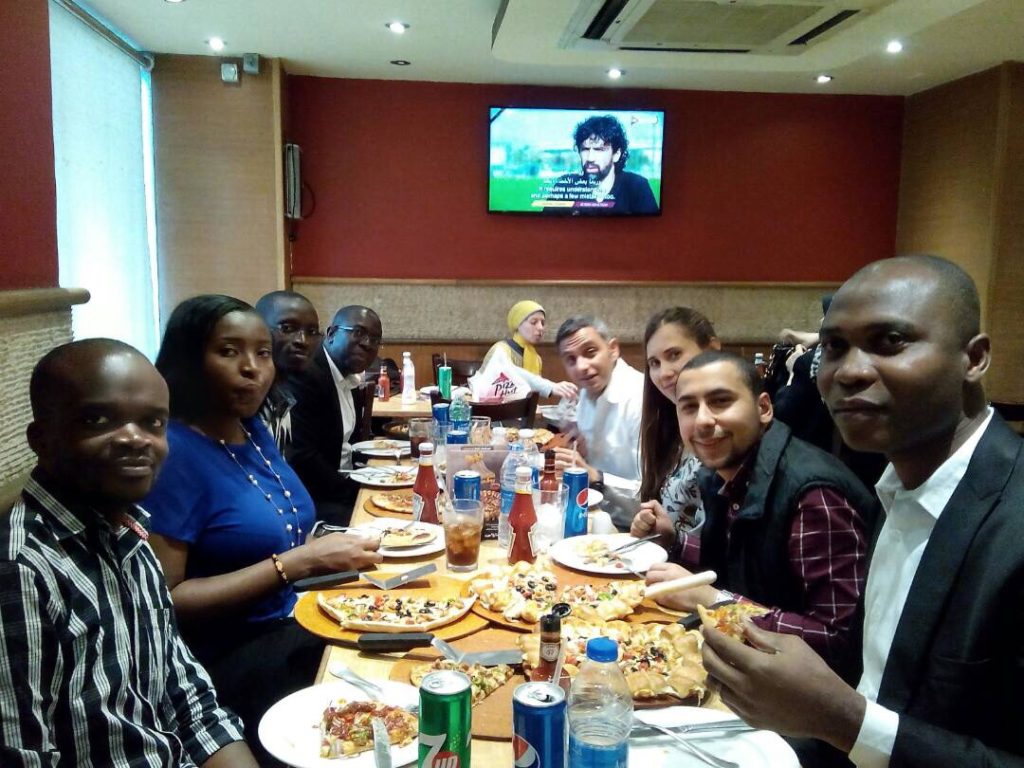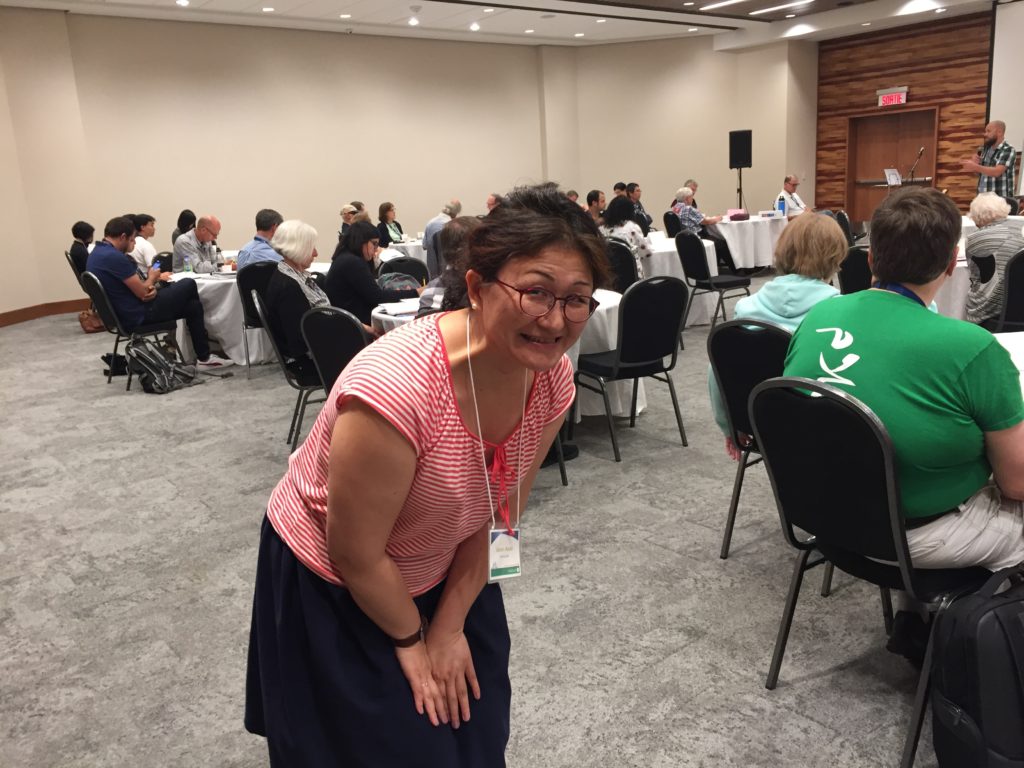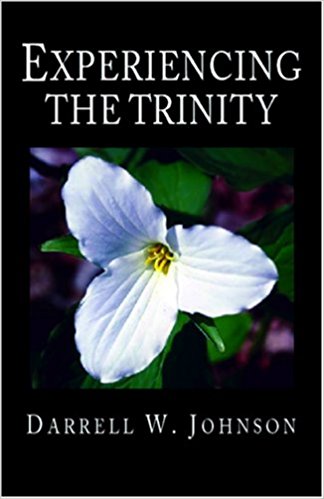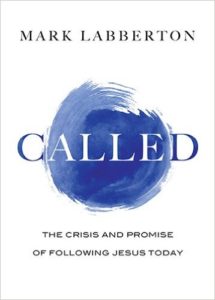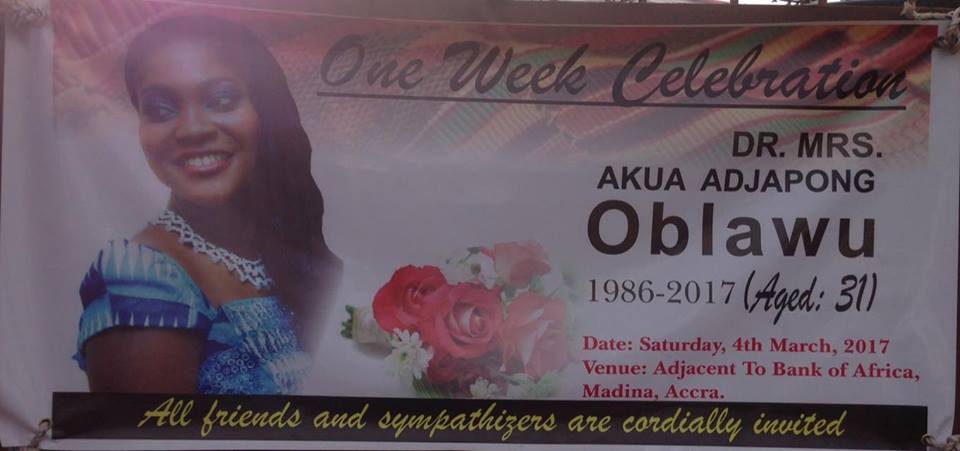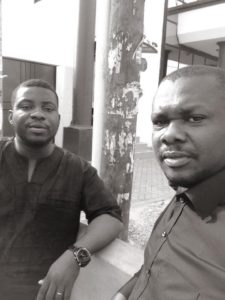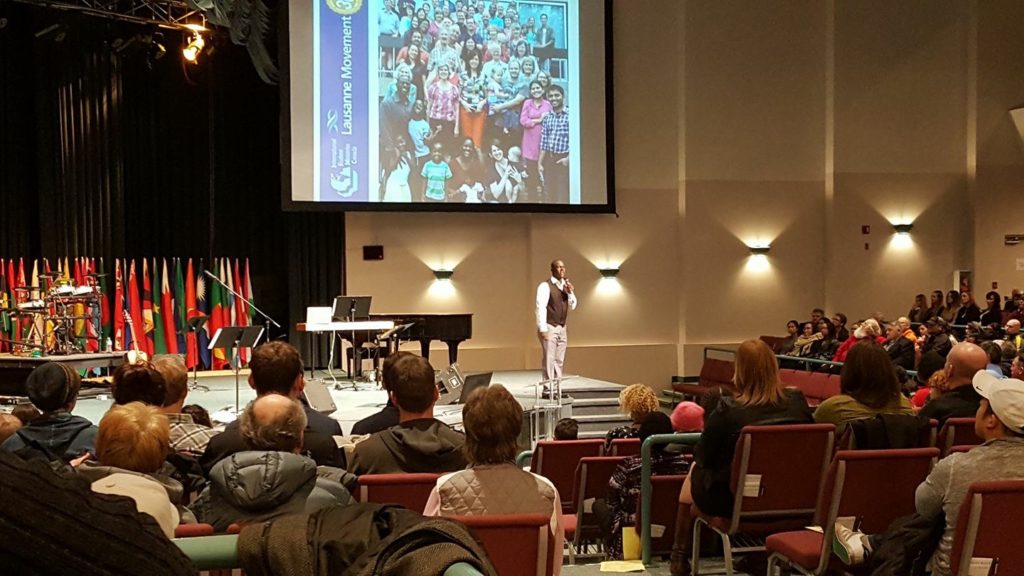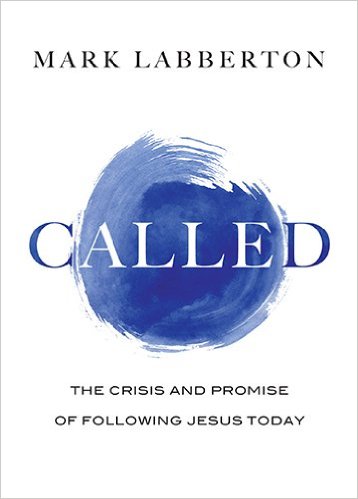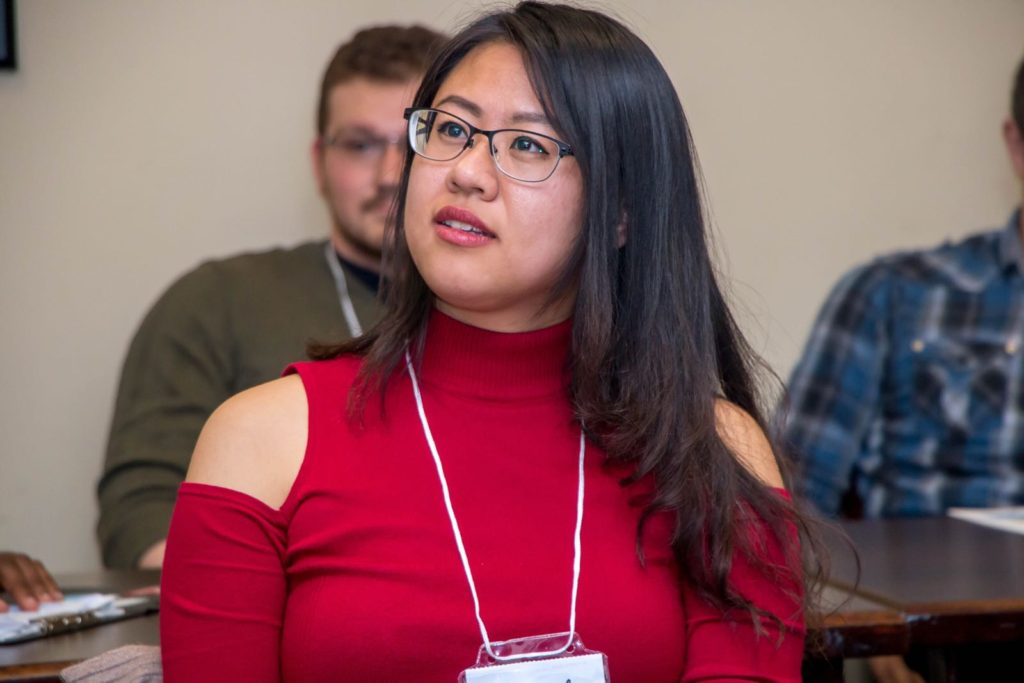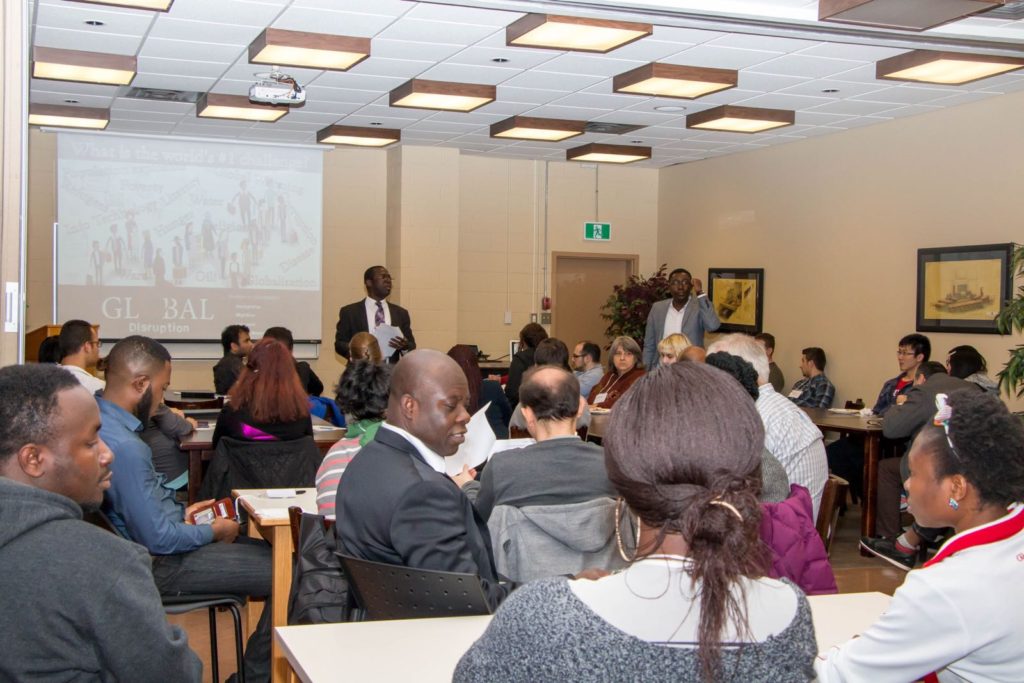A Daniel Dare for the New Year
With another new year comes another fresh challenge of fasting and prayer for 21 days—just like Daniel did.
HARD TO BEAT
Make no mistake. Every excuse you may have not to fast and pray, Daniel had same and more. He was super smart, highly intellectual and well-trained—from Alchemy to Zoology (Daniel 1). He aced the national test to serve the king.
He was super gifted with insight to interpret dreams, mysteries and hard puzzles that baffled the most sophisticated magicians, enchanters, astrologers and diviners of his time—in fact, he was once appointed chief of them all in King Nebuchadnezzar’s era (Daniel 5).
Daniel was super busy—he was one of three senior ministers overseeing 120 regional ministers of the Babylonian kingdom—he wasn’t slack. Indeed, Daniel so distinguished himself among the ministers and senior ministers by his exceptional qualities that the king planned to set him over the entire kingdom as prime minister (Daniel 6).
He was super principled and ethical—his diet, motives, honesty, disciplines, integrity, convictions… He was a man of noble character. He served several successive kings—he outlasted them—even as an immigrant in high political office.
Super young, super good-looking, super liked and all the above, he still found the need to fast for 21 days, seeking understanding of an issue that he wanted to unravel. At that time I, Daniel, mourned for three weeks. I ate no choice food; no meat or wine touched my lips; and I used no lotions at all until the three weeks were over. (Daniel 10:2-3)
If you are satisfied with being super by earthly standards, then by all means forget about the pain of fasting and the work of prayer. But if you want to see the supernatural intervening in your earthly matters, then welcome to the school of fasting and prayer.
DO THE MATH
Every new year is a mystery, like Daniel’s, waiting to be unravelled. To take 21 days seeking audience with the Author, Executor and Perfector of all the 365 days laden with prospects and dangers is only a 6% investment of your year but worth 100% of the effort.
Since 2007 a number of us have done this math and figured an exciting time of seeking the Lord in 21 Fasting Days of Prayer, Purpose and Planning at the start of each year is so worth it. See my blog last year for some of the most important reasons why I personally do this year after year for over 10 years now!
Please plan to join us as we seek the Lord in fasting and prayer from January 2nd to 22nd. We will plan to meet together daily for corporate prayer times in person or via video call (Zoom) from 5 pm to 6 pm local time (wherever you are in the world) and 5pm to 6pm ET in North America in particular. You will find the meeting link and schedule of daily prayer topics below.
CHOOSE YOUR FAST
In fasting, we commit to denying ourselves of food, drink or other comforts to more fully focus on prayer and fellowship with God. There are many types of fasts. There are complete fasts where you deny yourself all food or partial fasts where you forego certain types of food. Food is anything with calories 🙂 so does not include water (which has zero calories). It is actually a healthy practice to keep hydrated since the body is 60% water. A dry fast (no water) isn’t recommended beyond three days. Usually, when people set out to fast for an extended time—like the 21 days in the Daniel Fast—they will choose to do a partial fast.
The Daniel diet during this fast (like he did) is mainly vegetables and denying yourself meat, drinks and other choice foods. Basically, nothing fancy. Some still have three meals a day but nothing fancy (as described above) while others go the whole day denying themselves breakfast and lunch and eating only in the evenings.
Here are three suggestions of different partial fasts you could choose this January:
1) Full day fast Type 1: Fast from breakfast and lunch and eat a normal supper in the evening for the 21 days.
2) Full day fast Type 2: Fast from breakfast and lunch and eat a Daniel fast supper in the evening for the 21 days.
3) Fast Type 3: Eat three Daniel Fast meals each day for 21 days.
Please prayerfully consider joining us for this exciting 21 fasting days of Prayer, Purpose and Planning for 2018!
LAND THE DEAL
“Do not be afraid…Since the first day that you set your mind to gain understanding and to humble yourself before your God, your words were heard, and I have come in response to them. But the prince of the Persian kingdom resisted me twenty-one days…Now I have come to explain to you what will happen to your people in the future, for the vision concerns a time yet to come.” (Daniel 10:12-14)
It is the same dude, Daniel, who was unequivocal in stating, “…the people who do know their God shall be strong, and do exploits” (Daniel 11:32b). Now you know. HAPPY NEW YEAR!
TECHNICAL INFO
Schedule: January 2-22 daily topics here
Zoom Link: Join from PC, Mac, Linux, iOS or Android
Or Telephone: US: +1 646 876 9923 or +1 669 900 6833 (Meeting ID: 248 246 747)
International numbers available: https://zoom.us/zoomconference?m=BWpwOmbBqIO9McEisO8aYDJSSz5Wzav_
CONFESSIONS OF THE CALLED (#5): Convocation at the Table of Vocation
To be a stable entity one needs to get rid of a one-track mind that calling is just one thing and embrace at least four kinds of vocations, just like the legs of a four-legged table.
It was not until my university days that I clearly heard and understood that I had a unique and specific God-given calling in this life. The excitement of that threw me into an extreme mode where I sought that one and only specific vocation my Creator had for my life. If you’ve been following this Confessions of the Called series, you will know that a lot of my one-track perspective has changed. I now see at least four kinds of callings each of us have, and like the legs of a four-legged table, you just might topple without any of the legs:
1. Human calling.
Our first call is to be human beings (Benner 2015, 87). Personally, I find that I have been so much in a hurry to live out the next call below, the Christian call, that many times I have neither accepted my own humanity let alone that of another. I’m often in a hurry to deal with myself and people as Christian/non-Christian than first of all, as simply human. This is where you can love someone, even an enemy, simply because they too are human—made in God’s image.
2. Primary/General calling.
You may call this the Christian calling. This is basically the primary vocation of having been called by God himself in love to love God and love our neighbour as Christ-followers. The first few blogs in this ‘Confessions of the Called’ series have all been about how foundational and essential this is, before we attempt our secondary call.
3. Secondary/Specific calling.
Based on how God has uniquely wired us with gifts, passions, capacities, experiences, circumstances etc. we can discern through observation, prayer and counsel what specific vocation we may have, since no one else on the planet has our unique fingerprint.
Let me say here, another confession, that unlike the one-track-purpose-for-life that I used to think everyone had, there may be some of us who are called to a patchwork of callings. Perhaps no one captures it better than this English professor at Calvin College, Debra Rienstra (2005, 221-22):
“Some people’s passions are obvious, and God leads them through those passions into a single path of service. Mother Teresa, for example, or the lifelong kindergarten teacher, or the musician who offers his skillful playing every day for God’s glory and other people’s joy. Others, like me, have less obvious passions: what gives the energy develops over time or remains partially hidden or blooms suddenly in response to new situations. As a result such people offer an assortment of odds and ends as service: a regular job done with integrity, some volunteer work, a career decision that seeks service over money and prestige, kindness to neighbors, maybe a late-life passion for going on mission trips or teaching teenagers appliance repair. Their lives may not have the clean simplicity of vocation, but at the center of everything they do is a deep love for God—and that is everyone’s true vocation.
“I’ve learned that God treasures the lives made of a single piece of cloth, cut in the shape of service. But God also values the lives that look more like a bag of fabric scraps, some big pieces, some tiny pieces, different colors and weaves. At each stage in my life, with each piece of it, I try to ask God, “How can I offer this to you?” I have to trust that if I offer all the odds and ends of my life, God will stitch together the pieces in some lovely pattern and receive it as my gift.”
4. Immediate calling
This last one I gleaned from Gordon T. Smith’s Courage and Calling: Embracing Your God-given Potential. It brought such a sense of peace to me as I tend to be very futuristic and ‘big dreamy’ in my approach to life thus find little, urgent things like changing a diaper or taking my wife grocery shopping quite interrupting and irritating. Immediate calling means God invites us to be responsible with the present demands and tasks of our lives (Smith 1999, 10).
“And we know that God causes everything to work together for the good of those who love God and are called according to his purpose for them”—human, primary, specific, immediate callings. So come to the table just as you are, right where you are, right now. Relax. God’s got this.
Works Cited
Benner, David G. 2015. The Gift of Being Yourself: The Sacred Call to Self-Discovery. Downer’s Grove, IL: InterVarsity Press.
Rienstra, Debra. 2005. So Much More: An Invitation to Christian Spirituality. San Francisco, CA: Jossey-Bass.
Smith, Gordon T. 1999. Courage and Calling: Embracing Your God-Given Potential. Downer’s Grove, IL: InterVarsity Press.
What’s in a name?
Sometimes one can’t help but wonder whether names of people in history were given to them after they lived the way they did (to capture the essence of their lives) or really before. Naming is important; names are prophetic.
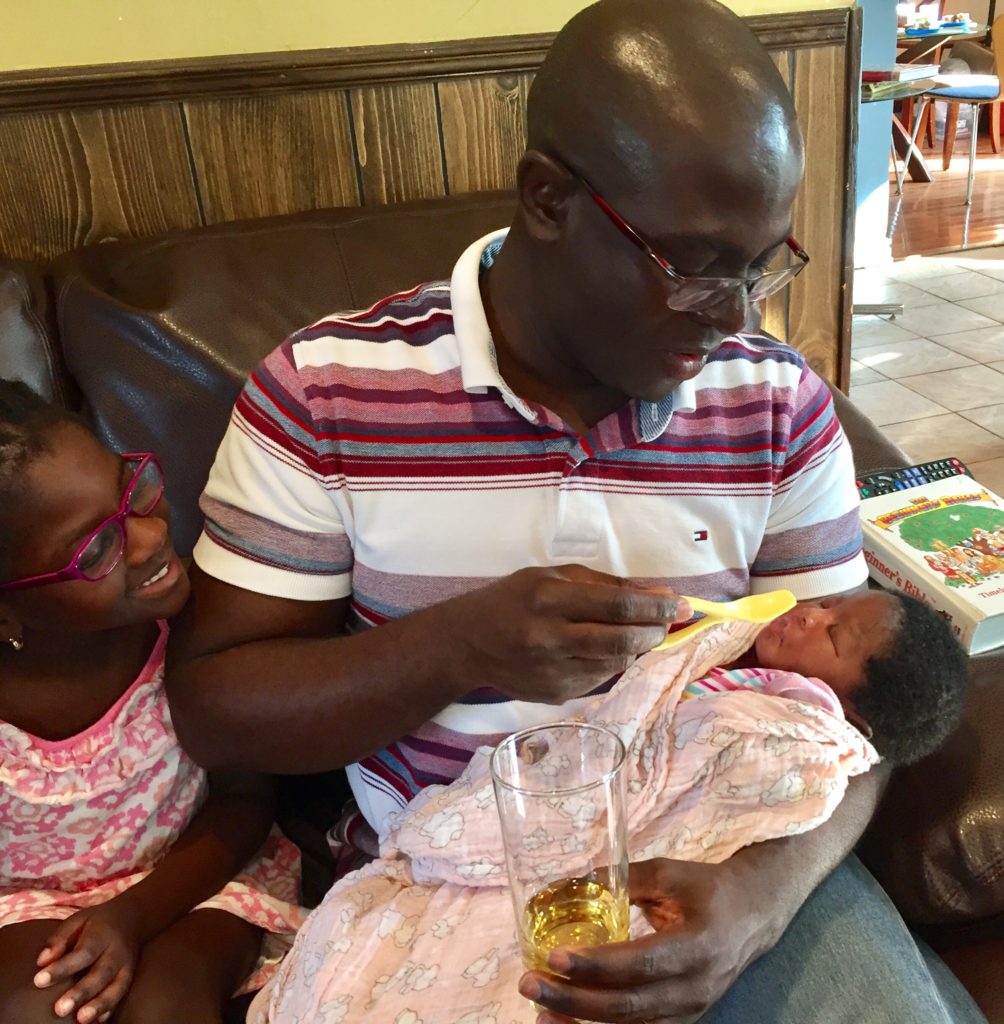
Performing an Akan tradition where you symbolically ask the child to learn to distinguish between ‘water’ and ‘juice,’ ‘good and evil,’ ‘black and white,’ right and wrong.’
Nana Ahomka
Nana Ahomka Asamoabea Perbi
And a voice came from heaven: “You are my Son, whom I love; with you I am well pleased.” (Mark 1:11)
And Jesus grew in wisdom and stature, and in favour with God and man. (Luke 2:52)
 I woke up early morning on Monday, 6th February with ‘Adenyinaamu’ on his heart; yes, that this child we were carrying will be holistic and have “God in my everything,” “God over everything.”
I woke up early morning on Monday, 6th February with ‘Adenyinaamu’ on his heart; yes, that this child we were carrying will be holistic and have “God in my everything,” “God over everything.”
Considering the challenge of name pronunciation in the global context we kept the idea of holistic, wholesome, bringing God pleasure in every area of her life and gave her the simpler version Ahomka, Nana Ahomka–God’s pleasure (delight). This emphasizes both our prayer that she will live a wholesome, holistic life, all aspects pleasing to the LORD, as well as that she will bring delight to us and everyone she ever encounters.
The middle name, Asamoabea, is that of my beloved paternal grandmother who was quite the prayer warrior and story-teller! And boy could she dance with delight to everyone’s delight!
Our prayer:
Let love and faithfulness never leave you; bind them around your neck, write them on the tablet of your heart. So you will find favour and good repute In the sight of God and man. Trust in the LORD with all your heart and lean not on your own understanding; in all your ways submit to him, and he will make your paths straight. (Proverbs 3:3-6)
From ‘Fantastic Four’ to ‘Fabulous Five’

Our children with their prophetic names (from left to right)…
- Nana Agyina (God’s Purpose) | Boy, 9 years
- Nana Adwenepa (God’s Paradigms) | Boy, 5 years
- Nana Ahotew (God’s Purity) | Girl, 2 years
- Nana Ashede (God’s Principles) | Girl, 7 years
- Nana Ahomka (God’s Pleasure) | Girl, 0 years (or 1 year, the Chinese way 🙂
Uncommon Sense or Nonsense? This Trinity Thing
On a recent flight from Halifax to Montreal, the Jehovah’s Witness in the seat next to mine couldn’t help but express near disgust at the concept of God as Trinity. “It just doesn’t make sense.” Wherever she is now, I hope she gets to read Johnson’s book. The author is spot on: it is true the Trinity is a mystery but it is not an absurdity!
The following is adapted from a Devotional Reading Report submitted as part of my Master of Arts in Global Leadership (MAGL) program at Fuller Theological Seminary. May this give you a good foretaste of Johnson’s small book with big impact. Grab it!
Johnson, Darrell W. 2002. Experiencing the Trinity. Vancouver, BC: Regent College Publishing.
Chapter One: Finding the Trinity
I began devotionally reading this book sympathizing with Thomas Jefferson as it seemed quite noble to follow the “simple Jesus” too (Johnson 2002, 13-14) until I realized that, like the early Christians who wrestled with this mystery, a true experience of God in his fullness, invariably leads one to the “complex trinity” (14, 32, 54). This made me understand even more deeply not only the title of the book, Experiencing the Trinity (emphasis mine), but also affirmed my conviction that our theologizing must emanate out of our experience, not just high “ivory tower think-tank” (18, 30) or armchair philosophizing.
Prior to reading Johnson, I had neither considered how the worship of Jesus would’ve been idolatry to monotheistic Jews (15, 30, 39) nor taken the time to observe that Jesus commands us to baptize disciples into the name (singular) of the three-fold God (16). How could I possibly not fall in love with the fact that God is one but God is not alone (22)? Profound! Even now I pause to join the heavenly chorus in adoration: Holy, Holy, Holy! (25)
Chapter Two: Understanding the Trinity
Such profundity, that “at the center of the universe is a relationship,” (37) a threefold community for which I was created and redeemed (37) and whose mission I am on—to bring in the rest of the party. Inasmuch as to the mortal mind this relationship may be “a riddle wrapped up inside a puzzle and buried in an enigma” (37) I truly appreciate Johnson not rubbishing the difficulty in trying to comprehend this mystery by affirming that “Yes, thinking about God as Trinity is hard work.” (38) What I found curious was that the early church “did not formulate the doctrine of the Trinity in order to resolve the mystery of God’s self-revelation, but rather to preserve that mystery” (40). O how I pray that my conviction will be as strong as theirs!
While umpteen analogies from nature try to and fail, to varying degrees, to capture the awesomeness of His majestic three-foldness, it is a stark reminder that the Trinity is not a natural phenomenon but supernatural (47). Dr. Roger Nicole’s diagram (41) has been the most helpful illustration that I have ever come across of both what the Trinity is and what it isn’t.
Chapter Three: Joining the Trinity
This chapter got me skipping like a lamb in my spirit, to recognize the most esteemed invitation I’ve ever received in my life: “God draws near to [me] in such a way as to draw [me] to himself within the circle of his knowing himself” (60). Wow! God’s invitation stuns me. First, that such a high and mighty one would open his heart and hands and stoop so low to literally invite me into his inner circle, rendering himself so vulnerable. But then secondly, it shames me to realize how not vulnerable I want to be towards him, let alone others not quite like me!
I love the ‘circle’ metaphor because a ring really has no beginning or end; it is eternal and entire—God eternally knowing and loving, worshipping and missioning. Not being a lover but a co-lover (62) with God of himself (64-67), of one another (67-68), and of the world (68-69) is a yoke I gladly embrace (66).
Stop and think for a moment: not only is God love, but “the mystery is that long before any human being came into the picture God was already love. God had already existed as a community of love” (62-63). This thought deeply saddened me that today humans think we are not only the originators but definers of love. That must totally break the heart of the relationship at the center of the universe!
What a burden lifted that I am neither the originator nor the driver of the wheel of worship (65-66). Surely God appreciates my worship but he is really not in need of mine! This thought made a lot of rounds on FaceBook when I shared it with my friends, especially worship ‘leaders’ who claim “worship is the only thing God cannot do for himself,” as if he needs anything, let alone us!
It had never occurred to me that “we do not have a direct relationship with each other. Our relationship is always with each other in and with the Trinity” (68). With this understanding of ‘us-ness’ (62, 67) one cannot help but really appreciate why unity of believers was such a key prayer of Jesus and how come it is by our love (John 13:35) and unity (John 17:23) that people will really see and believe the Gospel—they see God!
Chapter Four: Entering the Trinity
Johnson’s assertion that it is neither just “because of” nor just “through” but that it is in this community at the center of the universe that I live and move and have my being (75) is profound. No wonder Jesus said apart from Him I am and can do nothing (John 15:5). O happy day! I have been submerged into an eternal ring of intimacy, joy, peace, servanthood, purity, power and creativity!
Chapter Five: Experiencing the Trinity
It is quite true that “the more mysterious the emerging landscape, the further they must reach for appropriate language to describe it” (90) but this makes that one heavenly word which is able to capture it all even more profound: Holy! (25) I too kneel like Paul in prayer (90), undone in worship and simultaneously asking to experience this fullness of “all that makes God be God” (101), knowing full well that this can only be done in him by him.
Conclusion
What a life-transforming journey walking through this book has been. Ranging from knowledge of the Trinity to experiencing the Trinity, it is time to stop cheating myself (103). More than what a fuller understanding and articulation of the Trinity would do for my apologetics is what it has already begun to do in my own personal devotional life; more firmly rooting and grounding me (97) in the faith of my fathers and giving me a confidence in this divine mystery-but-not-absurdity (40), and certainly no longer a personal “intellectual embarrassment” (13). Holy!
CONFESSIONS OF THE CALLED (#4) : Don’t try this alone!
When it comes to calling/vision, I used to erroneously say things like, “Don’t listen to what other people have to say. After all, they weren’t there when God spoke to you.” How wrong I was. I repent.
“TO BE OR NOT TO BE?”
As I celebrated my birthday last week somehow I found myself going through some old emails dating back to 2008. I almost got ordained as a pastor that year. Almost. God spared me inflicting this upon myself… and on y’all 🙂
Back then I was still practicing medicine as a military captain with the United Nations Operation in Cote d’Ivoire and had survived a fatal road traffic accident, in which I lost two of my colleagues, barely three weeks into our peacekeeping operation. The miraculous circumstances surrounding my deliverance convinced me beyond any shadow of doubt that GOD had spared me, yes, but for a purpose beyond Medicine. I wanted to give the rest of my life totally to the preaching of the good news and the good life in Jesus Christ and raising younger leaders to do same. If my fervour for God and His kingdom had been a 7/10, it cranked up to 9.5/10 after the accident. Understandably, after such a near-death experience I became crazier for God, with white-hot intensity and with such a sense of urgency about life and mission.
In the midst of all the crazy schedule of doing my medical and military duties for the U.N., I would go to the Universite de Bouake at least twice a week to teach, go into the community to minister–like visiting someone the rebels had captured and jailed, seeing to the total transformation of the dignity of Salimata (picture on left) by getting her dentures, raising capital for business for an AIDS patient etc.
My favourite thing was to preach during our Ghanmed 5/Ghav 10 church services and at local churches. It is little wonder then that the head pastor of one of these churches strongly felt I should be officially ordained as a pastor. After all, I was doing the work anyway—perhaps even better than those who had the official recognition as such.
Everyone was excited—from my Commanding Officer to ‘the least of these.’ A date was set, preparations and decorations were made; my clerical collar (that stiff, white dog collar that reverend ministers wear) was procured, my measurements were taken for my special-collared shirt to go with it… refreshments for the party…
Everyone (and everything) was ready except the most important people in my life: my wife, my best friend and one of my pastors. It is their emails I referred to earlier. These three people had no doubt God’s hand was upon my life and that God had a calling for me but none of them was convinced it was either the time or the place for ordination as a pastor. I was deeply conflicted. On hindsight, they saved my life—and by extension, that of many people.
I must confess I’m a skeptic when it comes to Western Christians’ understanding and practice of anything communal. Unfortunately having been schooled in Western ways and lived in North America myself I have become even more individualistic than my home (African) culture. So I longed for a breath of fresh air when I picked up Mark Labberton’s book, Called, but I was cautiously optimistic. “What does an American writer, from a generally individualistic society, have to authentically and practically offer toward communal calling?” I wondered. I was not disappointed.
The author not only clearly agreed with my observation about individualism but also my concern regarding how community is needed to accurately decipher a call of God on one’s life: “Community should be a natural cornerstone of life as a Christian disciple; we’re meant to be a part of the community of God’s people. After all, Christian disciples can’t live faithfully by themselves, and we seldom hear the call of God alone. Biblically, the call of God is inextricable from the community of God’s people, yet the church in the United States is rife with evidence that the church seeks and avoids community, just like the culture around it” (80).
DON’T TRY THIS ALONE
“We seldom hear the call of God alone?” Wow! Indeed, this is the way Sherwood Lingenfelter puts it in his work, Leading Cross-Culturally: “To have effective, compelling vision for ministry, the kind of vision that will motivate people to follow, the Christian leader must have a deep and intimate walk with Christ and listen to and be filled with the Holy Spirit. But even more importantly, this vision must be tested in the community of the body of Christ, refined by the participation of the body in shaping it, and then mobilized by the body in prayer and action.
Back to Labberton: “The process of understanding the Spirit’s guidance is best done in community. It isn’t a private act of discernment but one that emerges as we live in relation to brothers and sisters who help lead us to listen to our own hearts and to listen for God’s. To do so wisely and not self-servingly or distortedly, we need friends in Christ who share in this process of listening and trusting. Together we are the dwelling place of the Spirit” (140).
Oh! How many people, especially young people, would’ve saved themselves, and myriads more, heartaches, disillusionment and destruction had they tested their ‘calling’ in the crucible of community. Man, don’t try this calling thing alone without a discerning community. And community is “where two or three come together in Jesus’ name.” That may very well be just you and your spouse. If I sense a ‘call from God’ that my born-again, Spirit-filled wife strongly disagrees with I will have to take a serious pause for profound prayer and further consultation. And how much better when my spouse, plus my accountability friend and my spiritual director are all in sync!
Strong ‘Type A’ personalities like me find this assertion that calling is best discerned in community very hard. But that is the way to go, God’s way. I’m eager to share what else God’s word, Labberton and others have to say about this in my next blog. For now, go ahead and tell me what you think so far.
IN LOVE WITH ANOTHER WOMAN
What if it’s really NOT “a man’s world” as much as we think and neither is God a He?
This is the morning after. I woke up yestermorning in love another woman. And I didn’t even realise till much later after sunrise when both people and birds alike began to tweet that the day was special: International Women’s Day (IWD). Just as well!
In my readings that morning—which had nothing to do with IWD but an attempt at chipping away at some assignment from my Master’s programme—I was impressed by Deborah. I fell in love with her. For those who think multi-tasking and role conflict is a (post)modern phenomenon, think again. Debbie was leading Israel as a prophet, a wife, and a judge (she reminds me so much of Ghana’s first and only female Chief Justice—ayekoo, Auntie Georgina! another mother of mine). By the way, those who use the Jewish Bible to veto women’s right and female leadership might need to be reminded that those same Jewish people in the 1960s elected a woman, Golda Meir, as their fourth prime minister. Incidentally, there’s something about March and women—she was elected on March 17, 1969, after serving as Minister of Labour and Foreign Minister. A feat the United States of America wouldn’t, or rather couldn’t, do with Hillary Clinton in 2016.
But I digress. Back to the woman I fell in love with yesterday, Debora. Not only were the masses going up to her to have their disputes decided, when she would send for prominent men like Barak (not Obama—but could very well be if she were living today), they would show up and she will command them what to do (I can see some men squirming already).
WHEN A MAN ___ A WOMAN
What did you fill in the gap with? Did you say, “When a man loves a woman”? If you did, I’m not surprised. There’s hardly a romantic song more popular than that Michael Bolton hit yet as I read about my newfound love this International Women’s Day I wondered why When a Man NEEDS a woman is not sung much? I don’t know if anyone has put a tune to lyrics like that (educate me!) but the Barak fella I was telling you about, wouldn’t even go into battle without Deborah! She was that powerful.
Despite a clear instruction from God to the warrior, hear his plea to Deborah: “If you go with me I will go, but if you don’t go with me, I won’t go.” Although “When a loves a woman” seems to be such a complimentary song to the fairer sex, I dare say, “When a man needs a woman” would be even more honouring. Especially, when it has nothing to do with romantic butterflies in the stomach! Surely, there’s more to a woman that eros? Was Barak a weak man or a wise man? We’ll soon find out.
GOD TOO?
I have a thing for women. And it seems I’m in good company. God too. Time and space won’t allow me to run through all the ways women are honoured throughout Scripture but what if I told you God was a She?
During IWD I had thought of throwing a social media challenge to dare all my friends to refer to God as She yesterday, only yesterday, to see their reaction. Maybe another day, DV. The first time I heard someone refer to God as ‘She’ I fumed! There must have been smoke coming out of my ears and nostrils! But stop to think about it for a moment.
Incidentally, while I was tossing and turning this thought about in my mind I received the latest publication of a Jewish organisation whose board I serve on with the same issue being addressed. Rich Robinson began his Jews and Gender article by sharing a jabbing story.
“I took a class in theology once, the kind where the professor had an exotic (to an American) Scottish brogue and brought a unique viewpoint to nearly everything. The day came when someone asked him, “Why is God always described as ‘he’ in the Bible? Why isn’t God ‘she’? How come God isn’t female?”
The Professor thought for a moment and then gave a succinct two-word answer: “He is.”
Wow! It is true that while more often than not God is typically depicted in masculine terms (father, king, warrior, bridegroom) there are also several places in Scripture where God refers to Himself in female terms. For example, “As one whom his mother comforts, so I will comfort you…” (Isaiah 66:13). How about this one, “Can a woman forget her nursing child, that she should have no compassion on the son of her womb? Even these may forget, yet I will not forget you…” (Isaiah 49:15-16).
Sometimes you have God as both father and mother in the same breath, like “You were unmindful of the Rock that fathered you, and you forgot the God who gave you birth [mothered].” (Deuteronomy 32:18) Another masculine and feminine imagery of God together in the same space is this: “The LORD goes out like a mighty man, like a man of war he stirs up his zeal, he shows himself mighty against his foes. For a long time I have held my peace; I have kept still and restrained myself; now I will cry out like a woman in labor; I will gasp and pant” (Isaiah 42:13-14). I will suggest you read Robinson’s the full article here. It just might shift something in you.
While (post)modern feminists, fundamentalists and theologians debate these gender issues, I find it interesting that my dear (and only) wife’s tribe in Ghana, West Africa, the Ga people, have for ages rightly referred to the Almighty as “Ataa Naa Nyomo,” Ataa (male) and Naa (female). Translated, “Father-Mother God.” Ironically, Prof. Mercy Oduyoye states, “The older understanding of God as both male and female…has been lost in modernity.”
SO GOD IS A WOMAN?
So is God a man or woman? Is He bisexual? Or is He all the 58 genders on Facebook (I bet you didn’t know that!)? Two things: First, God is God. He is beyond gender. But secondly, God created mankind is in His own image—male and female. It takes both genders to properly display God’s full image and glory. One gender is woefully inadequate to express God’s image; just as one race is grievously insufficient to display His full picture.There are strengths male men have
As with all personalities and groupalities, when it comes to gender as well there are strengths that male men have that female men don’t and vice versa. When we get into the fights about who’s better or weaker, we miss the point. Some people’s left hand is weaker or less dextrous than their right; for others (like my mother and sister), it’s the opposite. But all of us will agree that we’re better off with both. And o, even to be ambidextrous!
MAN ENOUGH; GOD ENOUGH
Today, I honour all the women in my life for making me a fuller man—my wife, my sisters, mentors, mates, mentees and co-workers. As for my mother, I wouldn’t even be a man at all—not even born in the first place—but for her. Every man came from a womb-man. And for those women who are still underpaid, be assured, the day will come when those who undermine you will be payed back their due and more.
I am man enough to say I need a woman. And you? Are you woman enough to say when you need a man? As for God, don’t worry about Him. He is God enough to stomach all our gender nonsense. Again you ask, “Is God a female?” “He is.”
WHEN LIFE DOESN’T MAKE SENSE!
In a world replete with success philosophy and prosperity preachers, how does one make sense of life when tragedy hits and one has no mental framework or faith construct to deal?
Man! February 2017 was one nasty month—humanly speaking. Tragedy upon tragedy. Within a week a friend and co-worker gets a stroke in Canada, a mentee loses her grandfather in France, another (a former international student in Belgium) loses her dad in Ghana… and then, as if these weren’t enough, the month wouldn’t end without the loss of a friend, a younger medical colleague in Ghana!
In fact, today is the ‘one-week celebration’ of the latter (picture above). Man! Akua was barely 31! I remember her beautiful countenance, not only from her internship days at the 37 Military Hospital when I was a medical officer there, but even only last November (2016) while I was in Ghana I had the joy of seeing her in her home. What had happened was that my bosom friend and brother Ben had urged me to come along with him to visit a school mate of his (and fellow church member) who had recently suffered a stroke. Prior to that I had no clue it was Akua’s home we were visiting—and that she was the young wife of Kofi. (As it turned out later, Kofi is actually the classmate of my wife, Anyele, from primary school).
My heart sank when I saw this hitherto strong young man, Kofi, wheelchair-bound and struggling to utter a few words from a seriously contorted face. This young man who was working in the insurance world had barely been married a few months when he suddenly had this stroke. Not even surgical interventions in the United Kingdom had salvaged the sad situation. Yet it was gratifying to observe his faith and how strongly supportive his young bride had been from the beginning up until the day I visited them, nursing him with love. The smart, pretty doctor now had a husband for a live-in patient.. O boy did I pray my heart and lungs out!
So imagine my shock last week. I had missed a phone call in the midst of busy travel. When I finally got to call back the conversation went something like this.
“Yaw, do you remember Kofi whom you prayed for?”
“Aha, of course.” (They say fear and faith don’t mix–well, at that moment I had both somehow.)
“Kofi’s wife just died!”
“Huh? Ben, what are you saying?”
“Yes oo, Yaw. Kofi’s wife, Akua, just died!”
“What?!!What’s going on?!” …
BRINGING IT HOME
Silence. Sadness. … Sometimes, life just doesn’t make sense and it would be interesting to hear what strictly-prosperity preachers have to say to these things. As for atheists and agnostics, I don’t know how they make it through life but for me, without God there is neither hope nor any sense to life. Yet then again, like David Bosch puts it in A Spirituality of the Road, “A god who provides all the answers becomes an explicable and comprehensible god, but also ceases to be God.” Bosch continues to share about an Albert Schweitzer (French-German physician and theologian) experience:
“Albert Schweitzer, in recollecting the ten years he taught catechism classes to boys in Strassbourg before the First World War, noted that after the war some of those young men thanked him that he had shown them so clearly that the Christian faith does not explain everything. This awareness enabled them to survive spiritually in the trenches, whereas many others, who were told that Christianity provided all the answers, lost their faith when faced with that which was inexplicable.”
But this was my shocker: the story of a piece of paper found among the ruins of the Jewish ghetto in Warsaw after the Second World War. It is said to contain the last words of a certain Jew, Jessel Rakover, as he was preparing himself for an impending violent riot aimed at the persecution and massacre of his ethnic/religious group. The portion of Bosch quotes in A Spirituality of the Road gives me the chills. Here goes:
“I believe in you, God of Israel, even if you have tried your best to dissuade me to believe in you. I believe in your laws, even if I cannot approve of the way you manage things. … I bow my head before your majesty, but I will not kiss the rod with which you hit me. … I would like to say to you that at this moment, more even than in any previous period of our eternal struggle for survival, we, the tortured, the humiliated, buried alive, burnt alive, insulted, mocked, we, murdered by million, that we have the right to know: until when are you going to allow it to continue? …I say this to you because I believe in you, more than ever before, because I know now, with absolute certainty, that you are my God, because you cannot be the God of those whose deeds are the most horrendous expression of godlessness; … I die in peace, but not appeased; persecuted, but not enslaved; embittered, but not cynical; a believer, but not pleading; a man who loves God, but does not say amen to everything. I have followed God even when he had flung me down, tortured me, and made me an object of humiliation and derision. And these are my last words to you my angry God: all this will do you no good. You have done everything possible to destroy my faith, yet I am dying precisely as I have lived, saying: ‘Shma Yishrael, hear, O Israel, the Lord is our God, one Lord.’ Into your hands, O God, I commit my spirit.”
WHAT WILL YOU DO?
Are there any more persons on earth who have such stubborn faith? Any of the Augustine stock who would say, “For it is better for them to find you and leave the question unanswered than to find the answer without finding you”?
I just got off the phone this morning with a young man who lost two of his sisters in a tragic car accident a few years ago—and their father is a world-renowned preacher who as at this very morning was still doing his Lord’s bidding in London, UK. That day, apart from the two teenage girls, four other church members lost this lives. I knew and loved those dainty girls, especially the 19-year old whom I had grown fond of since her high school days! Tell me, how many preachers have a theological framework that can contain such inexplicable tragedy?
It is easy to talk about tragic Job and weeping Jeremiah or even Jesus whose life was cut short at 33. But as the Japanese theologian Koyama challenges, “Jeremiah and Jesus place their trust in the forsaking God! There is no longer the faith built upon God’s obvious answer. They believed in God even though God did not answer! … Here we do not see an answer-theology. We see instead a relationship-theology.”
I ask again. In a world replete with success philosophy and prosperity theology, how does one make sense of life when tragedy hits and one has no mental framework or faith construct to deal with it? Who is willing to “place their trust in the forsaking God” in a ‘God-forsaken’ place? This is hard; but such is life.
CONFESSIONS OF THE CALLED (#3): One more reason why reversal is suicidal
An immediate advantage I perceive in all of us clearly seeing and understanding that the first and most important, albeit general, call is to love God and people is how that takes away the pressure (and guilt too) that many of us feel to not only find God’s specific will for us, but even to be “in the centre of God’s perfect will.” Phew! Labberton is spot on here, that “Without any special guidance from the Holy Spirit, with no anxiety or worry, and with utter confidence, we can daily pursue these first things as our primary vocation.” Amen!
We already started talking about why reversal of first things (primary, general purpose) and next things (specific, unique purpose) is suicidal. Here are the three reasons I enumerated. We:
- miss the point
- miss the priority
- miss the person
The first two were dealt with in my last blog; I saved the best for last.
MISSING THE PERSON (IDENTITY CRISIS)
When we get so focused on a specific calling to be a teacher or carpenter or whatever, we tend to lose our primary identity as beloved children of God and rather define ourselves by what we do. We are not our jobs; we are bigger than that. In other words, we set ourselves up for an identity crisis when don’t get our primary purpose going first—and going well, for that matter.
Labberton puts it this way: “This is a classic tangle and fails to give full weight to what really matters most. So we go to work and forget or neglect who we are, and what our life is really about, how we seek to love and serve. We enter the subculture of our activities, and soon that reality begins to define and shape us, rather than the other way around” (89).
THE THREAT AND STRUGGLE IS REAL
I remember both the crisis and promise of being a new immigrant in Canada and the constant temptation to prove myself, especially as a minority (black man) financial advisor in an Anglo-dominated arena and having to meet certain quotas in order to win recognition, awards and to be regarded as among the elite. One day, I was both inspired and compelled to augment my personal mission statement with the following: “I am who God says I am irrespective of what I do/don’t do; irrespective of what I have/don’t have.” I still have that as part of my personal mission statement.
Have you noticed that the first two of Jesus’ three temptations were go get him to “do something” to prove his identity? “If you are…then…” What a sharp contrast with the heavenly Father’s affirmation of him just a few verses earlier during his baptism: “This is my Son, whom I love; with him I am well pleased.” Up until then Jesus had done ‘nothing’ but obeyed his Father’s will. One would even wonder if he had yet ‘found his purpose.’ This was not God’s beloved preacher or teacher or carpenter… just His beloved Son. Period!
“Our first vocation is to be the beloved. The primacy of God’s unearned love alone makes this possible. We live as the beloved, the treasured. This vocation is pure gift….” says Labberton.
I find Henri Nouwen’s 17-minute expose on “Being the Beloved” so straight to the heart. You might find it reassuring too. Watch here.
Why are we so concerned about what we do when everything first flows from who we are. It’s become cliché now that “after all, we’re human beings not human doings” but we still live like the latter, don’t we?
In Called, my seminary President is emphatic: “We start recovering our call when we learn which first things are first. The love of God in Jesus Christ is the supreme first thing; no one and nothing rivals or surpasses this. If we want to know ourselves and why our life matters, the Bible’s advice is to know our Maker, who knows and loves us fully.”
And then he beautifully continues thus, “We matter, and our calling matters, not because we’re the supreme test of anything but because we exist for the joy and satisfaction of our Maker, whose love alone enables us to flourish… Our vocation will involve work and labor, and that has its meaning and value. But we are “very good” in God’s sight because of bearing God’s image—not because we are fruitful and multiply (Genesis 1:28) but just because we are.”
TIME TO RECALIBRATE
When helping people to find their specific, God-given purpose a very useful tool (learnt from Rick Warren) has been to help them discover their SHAPE: Spiritual gifts, Heartfelt passions, Abilities (talents), Personality and Experiences. This is wonderful! However, again, the danger of reversal of first things is this: “If we try to settle the issues of calling through the lens of our strengths and weaknesses, our preferences and dreams, we will be prone to overreach (because we make ourselves and our desires the ultimate measure) or underreach (because we’re willing to allow ourselves or someone other than God to tell us who we are). Over the course of our lives, neither works well or leads us to the truth.” (Labberton) And that, my friend, is suicidal.
In conclusion, “This is, of course, why Christians believe that coming to faith in Jesus Christ matters so much—not because it’s like handing out a “get in heaven free” card, but because it’s like offering an invitation to know yourself through the love of God in Jesus Christ, a gift that will change how you understand your identity and therefore how you live both now and in eternity. Knowing ourselves and knowing God are inseparable” (Labberton).
I love Eugene Peterson’s translation of Ephesians 1:11: “It is in Christ we find out who we are and what we’re living for.” May I dare even rephrase this as, It is in Christ we find out we we are THEN what we’re living for? Not getting this first thing first messes up everything; E-V-E-R-Y-T-H-I-N-G!
CONFESSIONS OF THE CALLED (#)2: Why Reversal is Suicidal
RESETTING THE STAGE
So Mark Labberton, author of Called, argues that Jesus’ two-word directive, “Follow me,” is the primary call that creates and defines our vocation (Labberton 2014, 9). While this seems basic it is quite revolutionary. This is not the approach or content I had anticipated from the title of the book. The heart of God’s call is this, Labberton seems to proclaim, that we receive and reciprocate the love of God for us—directly back to him first and indirectly to our neighbour. Indeed Jesus, quoting from to the Torah, made it clear that the greatest commandments are to love God and love people, period! This is our primary twin-call.
And I happily accept that. I also concur that whether or not we’ve discovered any specifics to our purpose in life we should live out this first thing. We even agree that this specific, unique God-given purpose should be “aspects of our call [that] assume first things but then move us in particular contexts of work or ministry, of friendship or marriage, of service or advocacy, of imagination or analysis. The next things may take the form of jobs (and often do), or they may be acts of volunteer service. This is where the convergence of gifts, talents, education, opportunity, passion and more draw us towards jobs or service that can seem deeply rewarding.”
When it comes to the specifics, however, I believe that Jeremiah was not an exception; that God saying of him that He knew him and fashioned him in the womb for a specific purpose applies to each of us too. Otherwise, for instance, why do each of us have unique fingerprints?
So yes, I grapple with my seminary president’s assertion that “Beyond these first things, God [only] sometimes has next things” because I still believe he always does for everyone. That notwithstanding, I immediately see the dangers he points out of not keeping first things first (pursuing our primary call of loving God and loving people) and rather seeking custom-made next things first. Reversal of first things and next things is not just counterproductive in the end; I dare say it is even suicidal. Here are three reasons why (which I’ve summarised and coined in my own typical alliteration fashion). We:
- miss the point
- miss the priority
- miss the person.
I will dwell only on the first two dangers here (in order to keep this blog short and sweet) and highlight the last one (potentially the worst; and the lengthiest) in the next installment, DV.
1. MISSING THE POINT
We are not here for us—we are here to please/glorify God and bless humankind. What is the point if we discover that we are uniquely shaped to, say make music, and yet end up using it in a way that offends our creator and/or exploits our fellow human beings? There are many celebrities who have obviously discovered their gifts and talents (specific God-given purpose, if you like) but who are still far away, so far away from their primary call to love God and people, or in the words of Jesus, “Follow me.” What if even our ‘calling’ or ‘career’ now rivals our primary love for God?
I think of many people who say they’ve discovered their calling, let’s say to be medical doctors, but whose attitudes stink—are they really living out their God-given purpose then? How about the one who is an obviously gifted public servant and yet is corrupt to the core? Does she not make a mockery of her primary purpose in the midst of executing her specific, secondary call? What’s the point?
On the other hand, “If we embrace and practice our primary calling to live as followers of Jesus,” Labberton posits, even “in the most practical and ordinary contexts of our lives, the meaning of our secondary call will more likely occupy its appropriate place and will bear the weight and priority that is formed by what matters most” (169).
Again, “If and when we come to a particular setting or work that especially suits the way we’ve been made or to work on the concerns or passions we want to give our strengths and energies to, we bring to those settings far more of what they need than just good talent or interest. We bring something of the kingdom” (170).
2. MISSING THE PRIORITY
First things trump everything. As Labberton puts it, “In Scripture, God seems far more passionate about first things—how we live and love and our neighbor—than about next things—what our set of daily tasks is. At the same time, it’s clear how we love him and our neighbour by how we demonstrate that in the context of our daily relationships and tasks. This is where the ordinary joy and rub of Christian discipleship are meant to be lived out. We live out the extraordinary call of following Jesus (first things) right in the midst of the ordinary actions of daily life (next things).”
In other words, in the grand scheme of things, someone who hasn’t discovered their specific, unique God-given purpose but is loving God and neighbor in whatever ‘mundane’ tasks in life is making the mark in God’s eyes while the one with the perfect skill set in the most fulfilling profession but missing first things may end up with the short end of the stick like the scenario Jesus describes at the final judgment when many will come and say, “Lord, Lord, did we not prophesy in your name and in your name drive out demons and in your name perform many miracles?” Remember the Lord’s response to such who missed first things even though they did next things? “Then I will tell them plainly,” he says, ‘I never knew you. Away from me, you evildoers, you law breakers, you workers of lawlessness!’
Does anyone need any further convincing that missing the point of purpose and missing God’s priority in the chase after next things are suicidal? The third danger, why reversal is suicidal, I find even more fundamental than these other two but tell me what you think so far.
TO BE CONTINUED…
CONFESSIONS OF THE CALLED (#1): “Honey, I Think we Overdid it”
Of course ‘everyone’ wants to know, “why on earth am I here?” Why else would authors sell a tonne of books on that! But as I discover more about this valid existential question, some of my strong views and approaches to the whole issue of purpose/calling are being challenged and changed. This is a series of reflections and confessions of such.
“MR. KNOWS IT ALL”
Yes, I’m headstrong and very passionate about the things I’ve come to know, understand and believe. Yet my inner circle will also tell you that I’m not afraid to say “I don’t know;” neither am I ashamed to say “I was wrong.”
In fact, long before the term “paradigm shift” became cliché, I remember running seminars for young people, even 15 years ago, and challenging them thus: “if you come into contact with new information which makes you realize that a particular way you’ve been thinking and living has been making you ineffective, SHIFT YOUR PARADIGM!” Up to this day, my wife, Anyele, reminds me that at that moment, I will characteristically jump from one spot of the room to another, to illustrate my point.
Come on, after all, “we live and learn.” Did not some wise Greek philosopher once say something like “I know one thing; that I know nothing”? Even Albert Einstein is quoted as stating, “The more I learn, the more I realise how much I don’t know,” an obvious remix of Aristotle’s “The more you know, the more you know you don’t know.” So congratulations if you know it all 🙂
In the next few weeks, I want to humbly acknowledge a few mistakes and missteps of mine regarding the whole idea of calling or vocation. In a series I’m calling “Confessions of the Called” I will basically share some further enlightenment I’ve received, particularly based on the work of my seminary president, Mark Labberton, in his book Called: the Crises and Promise of Following Jesus Today (2014).
In this book, Mark Labberton attempts to paint two pictures. First, a dull one of the current states of the world and the church and then a brighter picture of the ideal—what could and should be. The first third of the book summarises well “the crises and the promise of following Jesus today” and then for the next three chapters reboots paradigms about where, how and to whom/what we’re called, finally showing the way forward in the last chapters.
Having been a student and teacher of purpose/calling for the last 15 years I seem to think I’ve learnt almost all I need to know about the subject. I was curious to know if Labberton had anything ‘out of this world’ to add to my knowledge and experience. Thus the question I had in mind when I started reading this book proactively was, will I really learn anything totally new about calling than I already do?
BACKGROUND TO CONFESSION
A decade-and-a-half ago, when a bunch of us set out to start the WannaBe Institute, which later metamorphosed into The HuD Group, we were bent on “inspiring and empowering young people to discover their God-given purpose and reach their full potential.” That still remains the core of what we do although the mission has expanded beautifully into God’s grander purpose for leadership and mission in over a dozen countries.
I was personally sick and tired of young people sitting around purposelessly not realising that they were not a mere accident but an intentional creation of a very personal God who had a very specific purpose for their lives. We’ve since taught thousands of people how to find their specific God-given purpose in life, and write personal mission statements, especially by looking through the lens of the manufacturer’s manual (the Bible) and how they’re wired.
NOW, TO CONFESSION #1
I am sad to say that in my overdrive to help many emerging leaders quickly find their specific God-given purposes for their lives—to become “meaningful specifics” rather than merely “wandering generalities”—I inadvertently got blindsided from adequately pointing them to and thoroughly addressing their primary call. I have been too eager to move to “next things” (as Labberton puts it in his book), even putting “next things first” sometimes. I remember saying to my wife, Anyele, a couple of mornings ago, “Honey, I think we’ve overdone it.”
As I read Labberton’s book, it became obvious that my paradigm of calling is exactly the opposite of Labberton’s (and we just might both be coming from two extremes and need a “radical middle” as my Vineyard friends oxymoronically put it). This is how Mark states his perspective of calling: “Beyond these first things, God sometimes has next things” (emphasis mine). “Only sometimes?” I thought in bewilderment.
This is a radical thought for me. I sure do affirm the general purposes of God for our lives, the primary purpose of loving Him and our neighbour, but quickly move on to what I consider the ‘main thing’, which Labberton calls a temptation, finding God’s specific purpose for one’s life assuming everyone has this, always. I am considering writing to the author about my struggle.
Let me tell you why Mark Labberton thinks my specific approach hitherto is dangerous. TO BE CONTINUED…
Will you share your thoughts so far with me?

